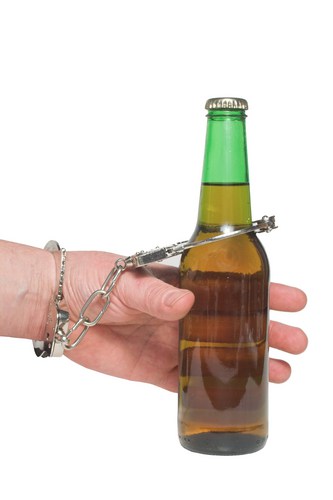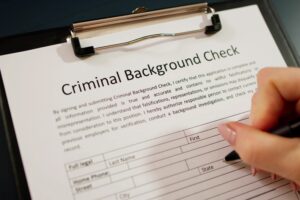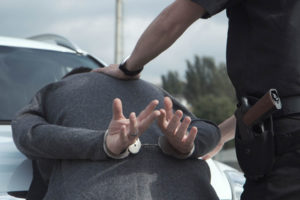
The penalty for underage DWI in Texas is actually comparable to those for adult DWI offenses. Texas also enforces laws that support a zero-tolerance policy toward underage drinking that carries their own penalties for minors who drink and drive. Note that the laws apply to the mere consumption of alcohol, not strictly intoxication.
The state’s Alcoholic Beverage Code (Title 4. Regulatory and Penal Provisions, Chapter 106. Provisions Relating to Age, Sec.106.041) specifies that any person under the age of 21 who drives with “any detectable amount of alcohol” in their system will be charged with Driving Under the Influence of Alcohol (DUIA), which is a Class C misdemeanor.
Class C Misdemeanor Penalties requires no jail time, but offenders can be forced to pay fines of up to $500.
Multiple Minor DUIA Offenses Carry Additional Penalties
Furthermore, if law enforcement finds that the minor has been previously convicted on at least two occasions of any DUIA offense, the third DUIA offense carries several other penalties.
The minor offender, in these cases, may have to pay a fine of between $500 and $2,000. Furthermore, they may serve a jail sentence of up to 180 days. In some cases, both penalties will be applied.
DWI Penalties for Minors (Ages 17-21)
The above rules apply to minors (ages 17-21) charged with DUIA. In cases where the minor is actually intoxicated, rather than merely under the influence of alcohol, Section 49.04 (Driving While Intoxicated) of the Texas Penal Code still applies, despite the offender’s minor status. This means that the underage DWI offender will be charged with a Class B misdemeanor.
First Offense
Convicted first-time DWI offenders will be fined up to $2,000 and will have their driver’s licenses suspended for 365 days. The court may order community supervision and an ignition interlock device, in which case the driver’s license suspension is reduced to 90 days.
Offenders will also serve a minimum confinement of three days and up to 180 days. However, if an open container is present in the individual’s car, the offender will be incarcerated for at least six days.
Furthermore, if prosecutors can prove that the offender’s blood, breathalyzer, or urine test showed an alcohol concentration of at least 0.15, the offense is elevated to a Class A misdemeanor. The most serious of Texas’s misdemeanor charges, a Class A conviction could leave you in a county jail for up to a year and facing a fine of as much as $4,000.
Second Offense
A second offense DWI counts as a Class A misdemeanor. Fines for this charge reach up to $4,000, and confinement times range from 30 days to one year. The offender’s driver’s license will be suspended for 180 days to two years.
Third Offense
A third (or more) DWI offense constitutes a felony of the third degree. A fine for this charge can be as much as $10,000, and the offender faces time in the penitentiary for anywhere between two and 10 years. The offender’s driver’s license will be suspended from 180 days to two years.
Alcohol Awareness Program for Underage DUIA
According to Section 106.071. (Punishment for Alcohol-Related Offense by Minor) of the Texas Penal Code, sometimes your underage DWI lawyer in Dallas, TX can manage a deferred disposition to suspend your sentence pending the fulfillment of certain conditions. In the case of minors with alcohol-related offenses, the court will require that the offender attend an alcohol awareness program approved by the Texas Department of Licensing and Regulation. Possibly, especially in cases where the minor is under the age of 18, a parent or guardian may be required to participate in the program along with the defendant.
Offenders with more than two previous DUIA convictions do not qualify for deferred disposition or deferred adjudication.
Community Service for Minor DUIA
If a minor is convicted of a DUIA, the court will also require that the offender perform 20-40 hours of community service (first-time DUIA offenders) or 40-60 hours (for previous DUIA offenders). The community service program will be related to alcohol misuse education or prevention.

How Texas Alcohol-Related Laws Work for Minors
Any driver can be stopped by a law enforcement officer who has probable cause or reasonably suspects that the driver is drinking. The police officer may conduct field sobriety tests at the time. If the driver is underage, and the officer concludes there is any detectable alcohol in the driver’s system, they can be arrested.
After being handcuffed, the minor may be taken to the police department where they may choose to take a breathalyzer test, or they may be taken to the hospital for a blood test.
If the driver commits an offense while a detectable amount of alcohol in their system, they automatically consent to be tested for blood alcohol concentration.

We Can Protect Your Rights as an Underage DWI in Texas
Any DWI offense is a serious, potentially life-changing matter. However, the impact of a DWI conviction as a minor can derail a young person’s life before they ever had a chance to move it in a positive direction. A DWI conviction as a minor is nothing short of disruptive, and you should make every effort to have the charges dismissed, deferred, or reduced, and then expunged from the minor’s record.
The Law Offices of Randall B. Isenberg can help you with all these efforts. Call us today at (214) 696-9253 for a free and confidential consultation of your underage DWI charge.










